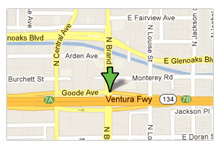Permanent Residence for the victims of domestic violence is controlled by the Violence Against Women Act of 1994, PL 103-322, 108 Stat. 1902-55, 8 U.S.C. §§1151, 1154, 1186a, 1186a note, 1254, 2245 (1994); Victims of Trafficking and Violence Protection Act (VTVPA), Tit. V (Battered Immigrant Women Protection Act) PL 106-386, 114 Stat. 1464 (Oct. 28, 2000); 2000 H.R. 3244; Violence Against Women Reauthorization Act of 2005, PL 109-162, 119 Stat. 2960 (Jan. 5, 2006), Cong. Rec. S13753 et seq. (Dec. 16, 2005) (Summary); Violence Against Women and DOJ Reauthorization Act-Technical Corrections, PL 109-271, 120 Stat. 750 (2006).
Who is eligible to petition? The spouse, child or parent who is battered or subject to extreme cruelty may file a self-petition independently of the abusive USC/LPR spouse or parent.
The child of a battered spouse is included without a separate petition. 8 C.F.R. §204.2(c)(4). The spouse or child must demonstrate that he or she resided with USC/LPR spouse/parent; was battered or subject to extreme cruelty during the marriage (or, in the case of a spouse self-petitioner, the child was battered or subjected to extreme cruelty); the marriage was entered into in good faith; she is otherwise eligible for IR or preference status; and has good moral character.
The spouse no longer must be married to the LPR or USC abuser at the time the petition is properly filed with USCIS because a battered spouse includes: (1) someone who in good faith believed he or she was married but was subject to bigamy; (2) someone who was married but the abusing USC spouse died within the 2 years immediately preceding the filing of the self-petition; (3) the abusing spouse renounced or lost his USC/LPR status within the 2 years immediately preceding the filing of the self-petition, and the loss was related to an incident of domestic violence; or (4) the abused spouse can demonstrate a connection between the legal termination of the marriage within the past 2 years and the battering/extreme cruelty.
A self-petitioner who had a bigamous marriage must demonstrate that: (1) she believed the USC/LPR was free to enter into the marriage; (2) the marriage ceremony was actually performed; and (3) the requirements for the establishment of a bona fide marriage were otherwise met.
Aged-Out Children
An abused child of a USC/LPR may petition until age 25 if he can demonstrate that the "abuse was at least one central reason for the filing delay." INA §204(a)(1)(D)(v). Otherwise, a child must be unmarried and under 21 when the I-360 is filed but will not "age-out" even if the petition is not approved until after 21 years of age. INA §204(a)(1)(D)(i)(1). Derivative children [[Page 872]] also do not age-out but are instead automatically transferred to the relevant preference category as approved self-petitioners. INA §204(a)(1)(D)(i)(III). They maintain their original priority date (or, in the case of derivatives, the principal's priority date) and receive the protection of the Child Status Protection Act, INA §§201(f)(4), 203(h)(4), 204(a)(1)(D), even if they lost their status due to the death of, or termination of status by, the abusive parent.
Self Petitioning Abused Parent
A parent may self-petition under VAWA if he or she is the parent of a current abusive USC, or the parent of an abusive USC who, within the past two years, lost or renounced U.S. citizenship related to an incident of domestic violence, or died. A parent can apply if he or she is a person of good moral character, is eligible to be classified as an IR, resides or has resided with the USC daughter or son abuser, and demonstrates that she has been battered or subject to extreme cruelty by the USC. INA §204(a)(1)(A)(vii).
Contact Our Firm
To schedule an appointment with Los Angeles visa attorney Artem M. Sarian, contact Sarian Law Group, APLC. We have offices in Glendale and Los Angeles, California, to serve you.


